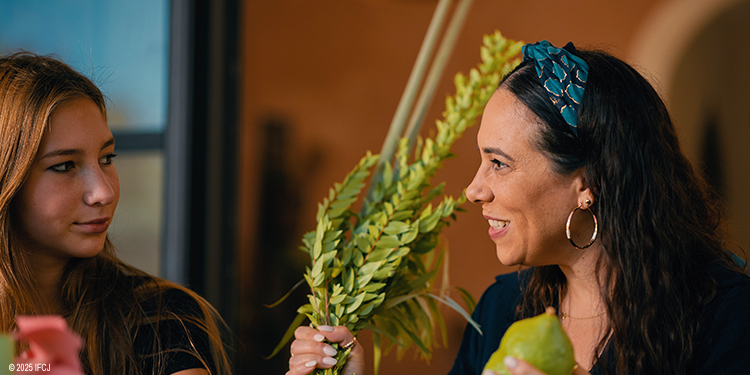Sukkah: Living in Joyનમૂનો


The Joy of Simplicity
“Celebrate the Festival of Harvest with the first fruits of the crops you sow in your field.
“Celebrate the Festival of Ingathering at the end of the year, when you gather in your crops from the field.” — EXODUS 23:16
The holiday of Sukkot is also known as the Festival of Ingathering. Similar to a harvest feast, this holiday marks the final gathering of crops that were grown throughout the past year. The season is autumn, the time when farmers bring in the final fruits of their hard labor. This time period is intricately connected with the purpose of the sukkah.
No matter how little or how much a person would reap in autumn, the sukkah served as a pointed reminder to all. When we live in the sukkah, we return to the basics of what we need; we get by with bare necessities and live the simple life. And we are happy.
We are so joyful because the daily clutter that accompanies us throughout our regular lives is gone. We are able to focus on what matters most—God, family, and friends. We have a decent roof over our heads and four walls that create a home where we can eat, sleep, and spend our time. We share meals with friends and study God’s Word. What more could we possibly need?
The sages teach that this is the message each farmer needed to learn and re-learn every year on Sukkot. For the farmer who harvested little, the message is that he need not be depressed because even a little is really a lot. Just as we can be joyful in our simple sukkah huts, anyone can be full of joy with a simple life, even if it is not a luxurious one.
For the farmer who was given an abundant harvest, the lesson is that while it’s wonderful to be blessed with material blessings, they are not what brings happiness. All the physical abundance in the world cannot bring a person true and lasting happiness.
What brings us the most joy are the things that money cannot buy. In fact, what brings us joy are not things at all—they are God, living a meaningful life, and the people in our lives. While we require basic material necessities to live in the world, they are merely a means to an end and not an end in themselves.
As we celebrate Sukkot every year, we also can benefit from these lessons. Whether we have a little or a lot, we have enough to live happy lives when we recognize what truly brings us joy.
શાસ્ત્ર
About this Plan

Mere hours after Yom Kippur comes to an end, sounds of building and banging can be heard in Jewish communities around the world as Jews begin to build their temporary shelter known as a sukkah. Five days later, we will inhabit our sukkah for an entire week as we celebrate the biblical holiday of Sukkot, the Feast of Tabernacles. In this reading plan, we will learn how the sukkah connects the inspiration and introspection of the High Holy Days with our everyday living.
More









